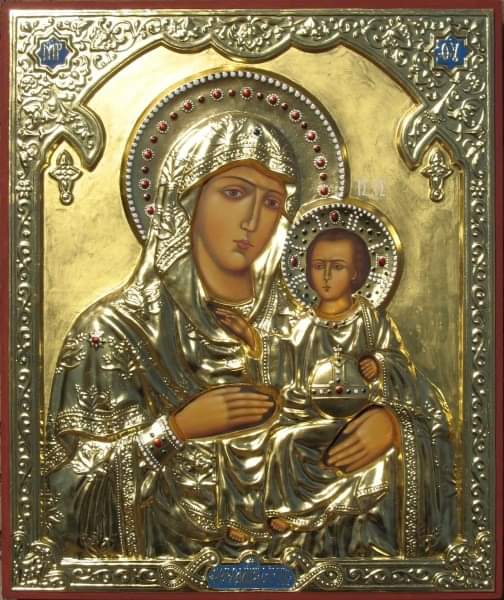On the eve of the greatest Orthodox holiday of the Resurrection of Christ, wives and mothers of prisoners of war from Russia and Ukraine are asking the superiors, clergy and all believers in Orthodox countries to cooperate with the authorities for the release of their sons, brothers and husbands on the principle of “all for all”.
The initiative is the organization “Our way out” – a public movement for the return home of the military personnel of the army of the Russian Federation, created by three women: Irina Krinina, Olga Rakova and Victoria Ivleva. The first two left their homeland and settled in Ukraine to be closer to their husbands, who are in Ukrainian captivity, and the third is a journalist and human rights activist. They do not want to return to Russia because they do not agree with the government’s policy there. Now they are helping Russian mothers and women to find their husbands, working to accelerate the exchange of prisoners. “In times of war, people are measured by battalions and behind the numbers the person is not visible, and we call to raise a voice that in the eyes of God every person’s soul is important and everyone has the right to salvation and forgiveness,” it says in the appeal of “Our way out.”
Their appeal is joined by women from Ukraine, whose sons, husbands and relatives are in the terrible conditions of Russian POW camps. “This war is suffering for the mothers and women both here in Ukraine, whose sons and men die in defense of their country, it is also suffering for the women and mothers in Russia, who for some unknown reason send their sons to this terrible war,” says Olga Rakova at the presentation of their project at the end of December 2023 (here). “We can achieve a lot if we ordinary women come together,” she adds.
The last exchange of prisoners between Russia and Ukraine took place on February 8, and for now such actions have ceased. The initiators emphasize that, in general, the release of prisoners of war is a complicated and very slow process. For the various groups of prisoners, not only Ukraine and Russia, but also third countries and international organizations participate in it. As a rule, political, economic, and military motives come to the fore in these negotiations. With priority from Ukrainian captives, the Russian side releases military specialists, highly qualified officers, pilots. Russia is also making extra efforts to release soldiers recruited from prisons (so-called “prisoners”). These are criminals recruited by the Russian army straight from prison with the promise that after the contract is over they will be released without serving their sentences. They are of interest to the negotiators from Russia, because after their release from captivity they are returned to the front again. Thus, the Russian mobilized military and contract workers are left with no prospect of returning to their homeland soon.
All this creates the possibility for the existence of a huge number of fraudulent schemes with which the already stressed relatives of the captives are manipulated. The “all for all” exchange will put an end to such practices, according to “Our Exit”.
During the course of the war, the number of prisoners of war increased. Exact numbers are not reported by either side, but it is in the tens of thousands. And if Ukraine, according to “Our Way Out” and other humanitarian organizations, complies with the Geneva Convention and provides the necessary requirements for life in the camps, then Ukrainian prisoners of war are kept in appalling conditions.
Several prisoner of war exchanges have taken place at the initiative of the Roman Catholic Church, but the Orthodox Church has so far not initiated such a process.
In July 2023, Hungary launched an initiative to release Ukrainian prisoners of war of Transcarpathian Hungarian origin, in which the Order of Malta of the Roman Catholic Church and the Russian Orthodox Church participated as mediators. Prisoners of war were released from Russian camps and handed over to Hungary, and the patriarchate described its involvement as “motivated by Christian philanthropy.”
According to the women of the organization “Our Way Out”, “only the Church can bring the issue of the exchange of prisoners from the plane of statistics to a moral humanitarian discourse, when the soul of each person is important. It can also show a willingness to negotiate and overcome acrimony.”
Pope Francis heeded the plea of the “Our Way Out” movement and included in his Easter message a call for an “all for all” prisoner exchange between Russia and Ukraine.
“Our way out” believes that the Orthodox Church can and should be an important factor in the implementation of such an act. The priests, the shepherds, dedicated to the care of the human soul, know that Christian charity is above justice and can see in the captive the suffering man. On the eve of the Resurrection of Christ, they call on the local Orthodox churches to make appeals to organize an Easter general exchange of prisoners – all from one side for all from the other.
There are only two weeks left until the Orthodox Easter, in which mothers, wives and relatives of the captives on both sides hope for the compassion of people of faith who can support the appeal for their common liberation on the principle of “all for all”.











